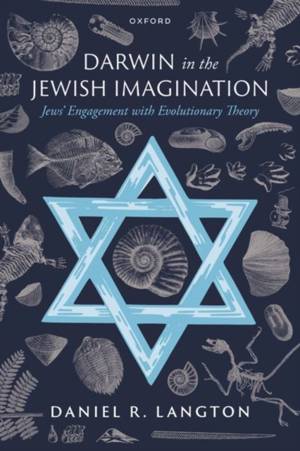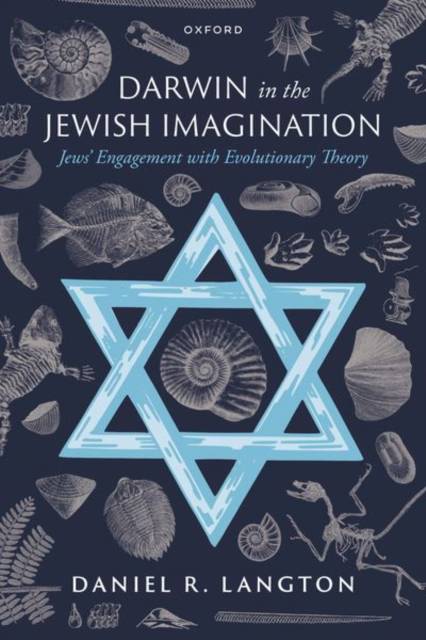
- Afhalen na 1 uur in een winkel met voorraad
- Gratis thuislevering in België vanaf € 30
- Ruim aanbod met 7 miljoen producten
- Afhalen na 1 uur in een winkel met voorraad
- Gratis thuislevering in België vanaf € 30
- Ruim aanbod met 7 miljoen producten
Zoeken
Darwin in the Jewish Imagination
Jews' Engagement with Evolutionary Theory
Daniel R Langton
Hardcover | Engels
€ 209,45
+ 418 punten
Omschrijving
Darwin in the Jewish Imagination provides an overview of Jewish responses to Darwinian evolution, one of the most transformative and challenging ideas of the industrial age. Spanning a century of intellectual and cultural history, it examines how Jewish thinkers-traditionalists, reformers, secularists, mystics, and philosophers-grappled with the profound implications of evolutionary theory for their religious beliefs and cultural identities. The book offers close readings of key figures and debates from Europe to the United States, situating them within the broader contexts of the religion-science controversy, Jewish-Christian interfaith relations, and the intellectual challenges of modernity. A central theme is the pan(en)theistic tendency evident in Jewish thought, reflecting a vision of God as intimately connected with the evolving universe and its natural laws. It explores how Jewish thinkers reinterpreted foundational concepts such as creation, divine action, and human morality in light of Darwin's ideas. This interdisciplinary work not only illuminates how Jewish thought adapted to evolutionary theory but also reveals the broader cultural and theological exchanges shaping modern Judaism. By examining these responses, the book sheds light on how science and Jewish religion have engaged in an enriching dialogue, with profound consequences for modern Jewish thought, belief, and identity.
Specificaties
Betrokkenen
- Auteur(s):
- Uitgeverij:
Inhoud
- Aantal bladzijden:
- 320
- Taal:
- Engels
Eigenschappen
- Productcode (EAN):
- 9780198967002
- Verschijningsdatum:
- 4/02/2026
- Uitvoering:
- Hardcover
- Formaat:
- Genaaid
- Afmetingen:
- 166 mm x 240 mm
- Gewicht:
- 635 g

Alleen bij Standaard Boekhandel
+ 418 punten op je klantenkaart van Standaard Boekhandel
Beoordelingen
We publiceren alleen reviews die voldoen aan de voorwaarden voor reviews. Bekijk onze voorwaarden voor reviews.







